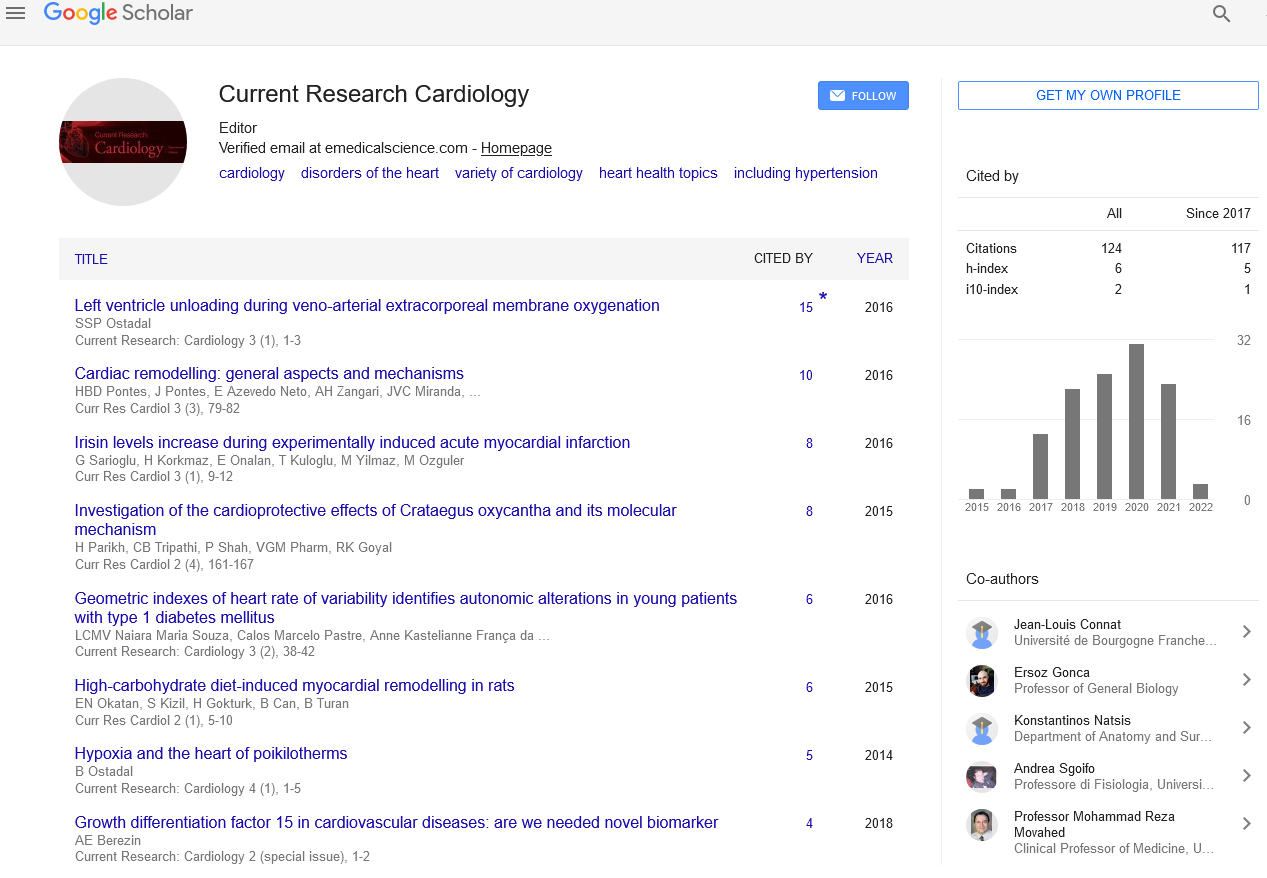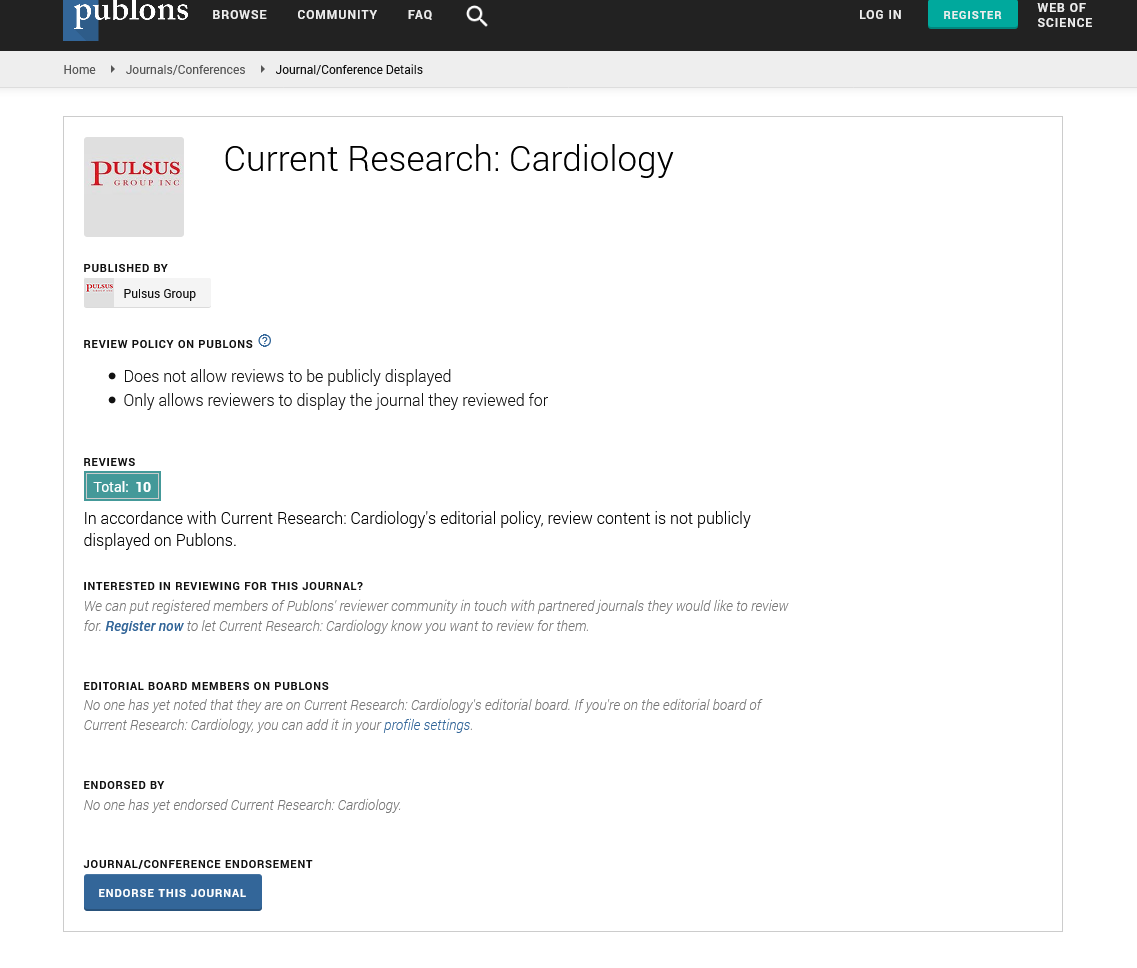
Sign up for email alert when new content gets added: Sign up
Cardiac amyloidosis with dominant autonomic involvement
6th International Conference on Cardiology
June 29, 2023 | Webinar
Zafar Ullah and Mahesh Prahladan
Ipswich Hospital, UK
Posters & Accepted Abstracts: Curr Res Cardiol
Abstract :
Cardiac amyloidosis is a disease caused by deposition of amyloid fibril in the extracellular space of the heart. It can present with signs and symptoms of cardiac involvement or may be diagnosed whilst screening patients who present with extra-cardiac signs of amyloidosis. The two most common types of cardiac amyloidosis are Transthyretin amyloidosis (ATTR amyloidosis) and Light chain amyloidosis (AL amyloidosis). A 78 year old female presented with symptoms of dizziness on standing and deteriorating mobility. She reported a two year history of postural hypotension - initially controlled with fludrocortisone, however due to poor tolerance, later changed to midodrine. Her only other past medical history included bilateral carpel tunnel syndrome that had been operated on previously and bilateral total hip replacements. General physical, cardiovascular and abdominal examinations were normal. Vital signs were within normal parameters with the exception of a heart rate of 139 beats per minute. Electrocardiogram showed evidence of fast atrial fibrillation. Baseline blood tests were normal. NT-proBNP was raised at 2243 ng/L and cardiac Troponin T at 20 ng/L. Echocardiography findings were normal taking into consideration the tachycardia. Radioactive technetium-99m (99m Tc) and 3,3-diphosphono- 1,2-propanodicarboxylic acid (DPD) scanning showed perugini grade 2 abnormal cardiac uptake, with features on cardiac MRI suspicious for cardiac amyloidosis. Endomyocardial biopsy was negative. Chemotherapy was commenced following MDT discussion given a high index of clinical suspicion for cardiac amyloidosis. Cardiac amyloidosis is caused by deposition of amyloid fibril in the extracellular space of the heart. Presentation may either be with signs and symptoms of cardiac involvement or incidentally whilst screening patients presenting with extra-cardiac features. • A monoclonal protein in the presence of echocardiographic or CMR features may support a diagnosis of cardiac amyloidosis. Tissue biopsy is not required when other findings are diagnostic for the presence and type of cardiac amyloidosis. • AL amyloidosis is usually treated with chemotherapy, whereas the approach to ATTR amyloidosis currently remains upportive.





